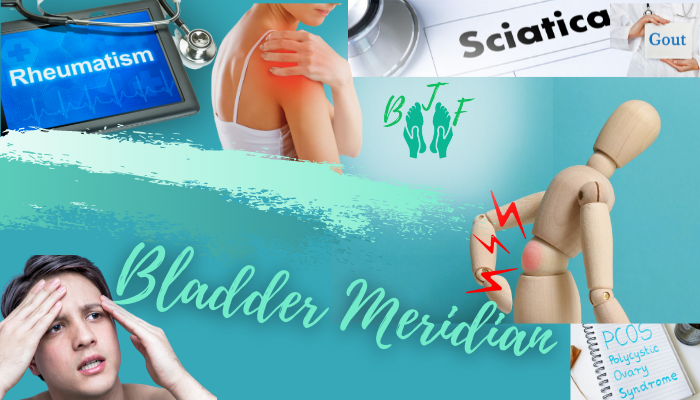Element: Water
Season: Winter
Peak in the day: 15h00 to 17h00
The function of the bladder meridian is pretty straight forward: the bladder receives and excretes turbid fluids from the lungs, small intestine and large intestine, once they have been converted into urine by the kidneys. In meridian therapy (such as reflexology), we believe the bladder meridian helps the kidneys store our vital force (Jing). If these meridians are out of balance, our body becomes poisoned, and our mind over stressed.
The bladder meridian has branches which flow along each side of the spine. Bear in mind: your spine not only holds you up, but also houses/protects an intricate network of nerves. As such, the bladder meridian directly influences our sympathetic and parasympathetic systems (parts of the autonomous nervous system). Central nervous system disorders can be worked on through the bladder reflexes in a reflexology treatment.
Our modern lifestyles tend to keep our sympathetic nervous system over stimulated, causing tension and pain along the spine and its peripheral branches. Reflexology can relieve the pain by regulating the flow of energy along the spinal branches of the bladder meridian. This induces total relaxation by gently reverting the neural pathways from highly stressed signals to restful and restorative parasympathetic neuron pathways.
This meridian has a major correlation with the lumbar vertebrae (such as L3 and L4), this area has a high concentration of nerves for the reproductive system (ovaries, testes, uterus and prostrate). A reflexologist who picks up an imbalance in the bladder meridian can expect their patient to experience any or many of the following obstacles:
Headaches around the forehead, crown or neck,
Tinnitus (low pitch),
Incontinence,
Irregular periods,
Fibroids,
Hemorrhoids,
Cystitis,
Nephritis,
Gonorrhea,
Prostatitis,
Systemic Lupus,
Kidney stones,
UTI,
Gout.
As a result of spinal issues via the muscles, our body may tell us through problems with:
(as a result of the condition of the Peroneus muscles)
Ankles,
Feet,
5th toes.
(as a result of the condition of the Sacrospinalis muscles)
Arthritis,
Rheumatism,
Bursitis,
Shoulders,
Elbows,
Scoliosis.
(as a result of the condition of the Tibialis muscles)
Rectal fissures,
Urethra,
Bladder.
(External presentations)
Forehead acne or hyperpigmentation,
Red / burning / watery eyes,
Weak or squint eyes,
Hair loss/thinning or premature greying hair,
Boils on the buttocks,
Varicose veins,
Athlete’s foot,
Bent little toe,
Pigeon toes,
‘Knife wedge’ on the underside of the 5th toe,
Nail issues on the 5th toes,
Disproportionately small 5th toes,
Feet bending inwards,
Hunch back (Kyphosis),
Lateral ankle sprains.
When our bladder meridian is out of balance/blocked, our psychological state can present with:
Habitual fear
Lack of decision making (crosses over with Gall Bladder meridian)
Diminished moral character,
Jealousy,
Suspicion,
And long-standing grudges.




